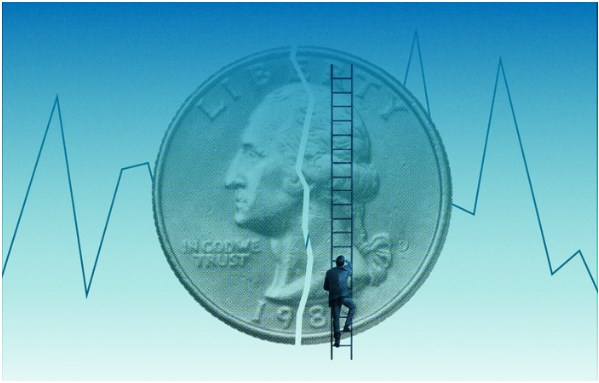
Inflation is The Big Topic for fund managers looking to optimise their portfolios at the moment. Latest data shows that UK inflation came in at 2.1% in May, higher than expected and above the Bank of England's 2% target for the first time since 2019.
Jumping prices in energy bills, restaurants and hotels helped drive the rate up in May. Many experts expect the upward trend to continue too, as people who have been stuck at home in lockdown for months look to splurge the cash they've saved while not commuting, shopping or socialising.
But higher inflation doesn't mean a bigger grocery bill or more expensive petrol, it can hit investments portfolios too. So we asked fund managers how they are preparing for rising inflation.
How to Protect Against Inflation
Typically, equities do well in an inflationary environment - the stock market has historically risen at a faster rate than inflation. For a long-term investor, that means your wealth has increased above the cost of living. But there are no guarantees this pattern will prevail.
James Beaumont, head of multi-asset portfolio management at Natixis Investment Solutions says diversification is the key. While the return of inflation has helped value stocks rally in recent months, he expects this to be a temporary phenomenon and thinks investors must spread their money across different assets to help build protection into their portfolio.
“To us diversification is crucial," he says. "Gold maybe, crypto is only for the brave, liquid alternatives struggled as yields went negative but maybe now is their time?" The biggest risk, he says, is holding too much corporate debt. Anyone discounting the possibility of corporates defaulting could be proved wrong. Indeed, the pandemic has already seen a number of corporate stalwarts - Debenhams, Arcadia - go belly up.
James Mee, fund manager at Waverton Multi-Asset Income Fund, was concerned about inflation last year and bought inflation swaps (a type of derivative) to build some protection into the portfolio. He has also been adding cyclical stocks to the portfolio which tend to do well in times of rising inflation, including commodities giants Rio Tinto (RIO) and Shell (RSB).
He adds: “We've also been thinking about those names that will benefit from opening up the economy and have been adding to names that we think will benefit in the next 12 to 24 months from the second phase of opening up, where people are more likely spend on holidays, experiences, cars, as opposed to goods and stuff.”
Commodities and Real Assets
David Coombs, fund manager at Rathbones, is looking for companies with strong pricing power, which can help them stave off the effects of inflation on their bottom-line by passing additional costs on to the customer. He, too, has been building his holdings in miners such as Rio and oil majors BP (BP.), Shell and Total as well as oil industry services provider Schlumberger (SLB).
Away from the stock market, he has bought US Treasury Inflation-Protected Securities (TIPS), government bonds issued by commodity-producing countries like Australia and Canada, as well as commodity ETFs.
Real assets - such as property and infrastructure - are another fundamental building block to protect against inflation as they are sensitive to inflation and growth, according to Phil Waller, investment manager at JPMorgan Global Core Real Assets (JARA). “As economies grow, the demand for real assets such as real estate increases, which can translate into higher capital values and higher rents,” he says.
Asbjørn Trolle Hansen, fund manager at Nordea Asset Management, is less concerned: while inflation is a risk to consider, he has made few charges to his portfolios in recent months and is sticking with what he believes are low-risk equities. Top holdings in his Silver-rated Nordea 1 GBP Diversified Return fund include tech favourites Alphabet and Ebay and vaccine-maker Johnson & Johnson.
The main danger of inflation is that erodes the value of your money in real terms, and that risk is more real when inflation is rising while interest rates are stuck at rock bottom, making it harder for savers to grow their money. But Coombs says there is another lesson to take away: that a great shock, like the pandemic, pushes people and companies to make changes.
He says: “These changes, when aggregated across nations, industries and the entire world, affect markets through prices. But perhaps the most interesting part for investors in the longer-term won’t be the effect on prices per se, but how this all feeds into the dynamics of industries and changes business models."




























